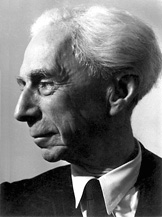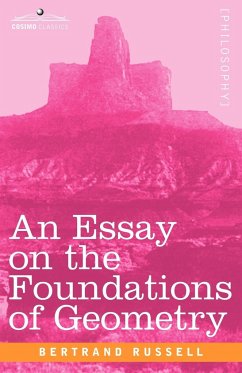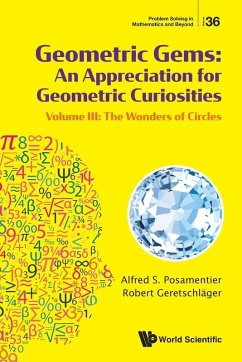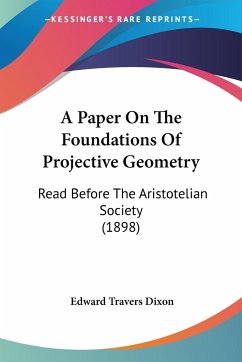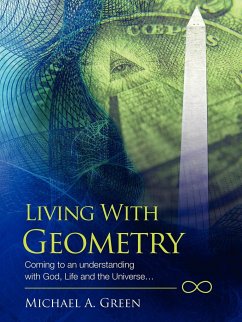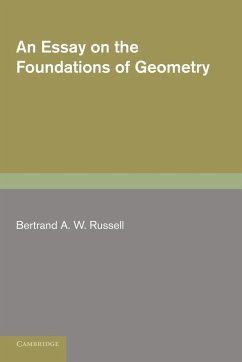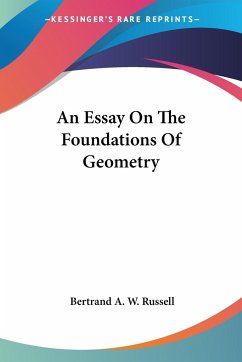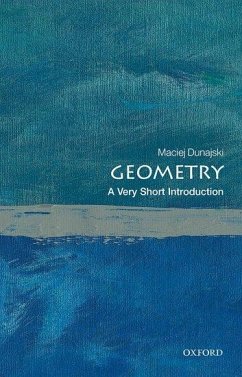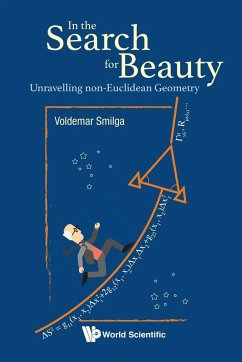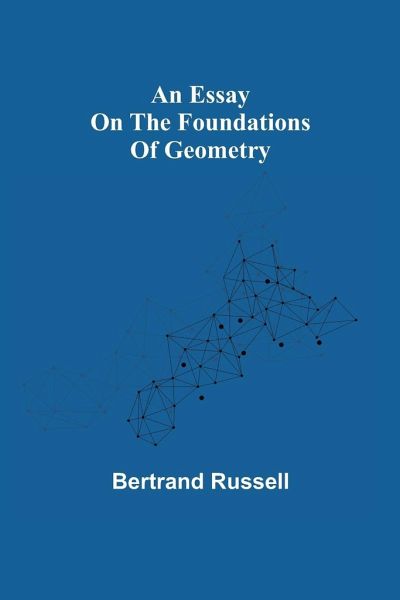
An Essay On The Foundations Of Geometry
Versandkostenfrei!
Versandfertig in 1-2 Wochen
19,99 €
inkl. MwSt.

PAYBACK Punkte
10 °P sammeln!
A hook: A quiet revolution in how we see space and thought, now within easy reach of curious readers and serious scholars alike. Bertrand Russell's An Essay On The Foundations Of Geometry returns in a pristine Alpha Editions edition, offering a logical, lyrical tour through the nexus of geometry and philosophy. This is not merely a philosophical geometry essay; it is a compact journey into mathematical philosophy text that probes how axioms and proofs shape what we claim to know about space, form, and inference. The book sits at the heart of early analytic philosophy, tracing how logic and geo...
A hook: A quiet revolution in how we see space and thought, now within easy reach of curious readers and serious scholars alike. Bertrand Russell's An Essay On The Foundations Of Geometry returns in a pristine Alpha Editions edition, offering a logical, lyrical tour through the nexus of geometry and philosophy. This is not merely a philosophical geometry essay; it is a compact journey into mathematical philosophy text that probes how axioms and proofs shape what we claim to know about space, form, and inference. The book sits at the heart of early analytic philosophy, tracing how logic and geometry illuminate each other while revealing the fragile yet enduring structures of mathematical knowledge. Its themes-foundations, clarity, justification-speak to students of logic, to historians of mathematics, and to readers who seek a rigorous, humane approach to big ideas. Historically, the work anchors the late nineteenth century British intellectual scene, offering a crisp window into how philosophers wrestled with certainty, proof, and conceptual clarity. For casual readers, it reads with surprising immediacy; for classic-literature collectors, it bears the stamp of a pivotal era. Out of print for decades and now republished by Alpha Editions. Restored for today's and future generations. More than a reprint - a collector's item and a cultural treasure.





